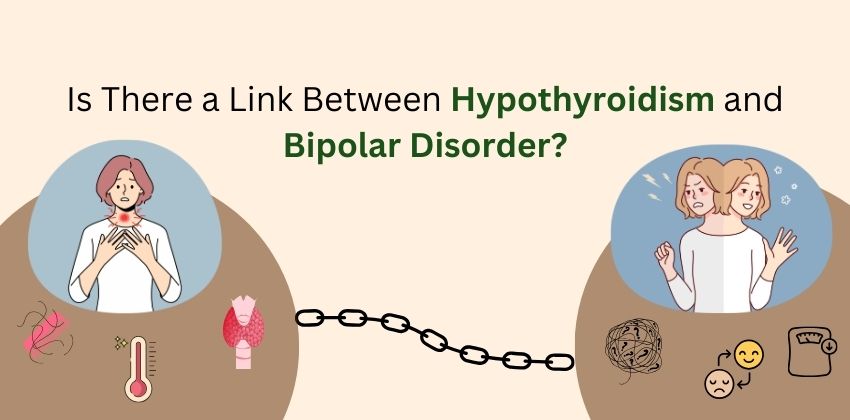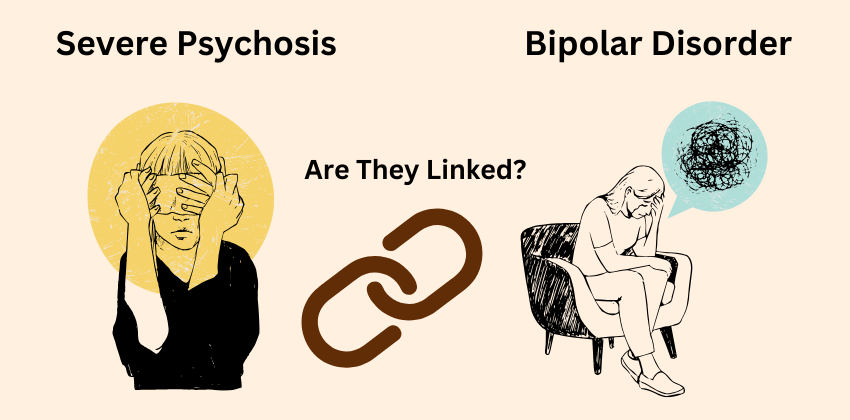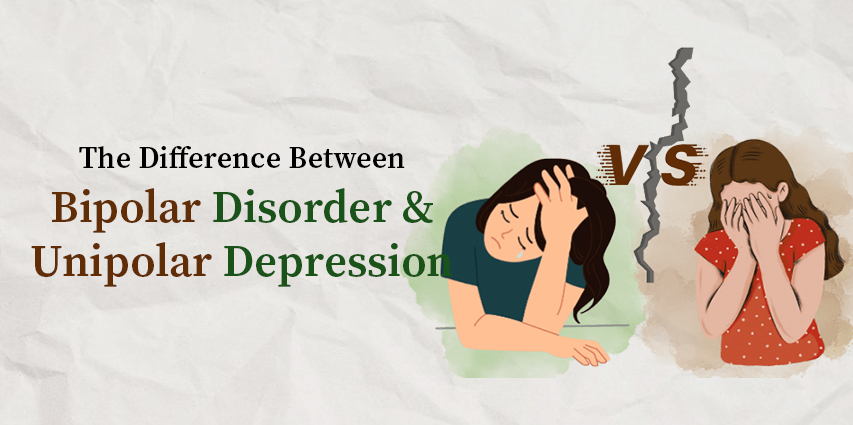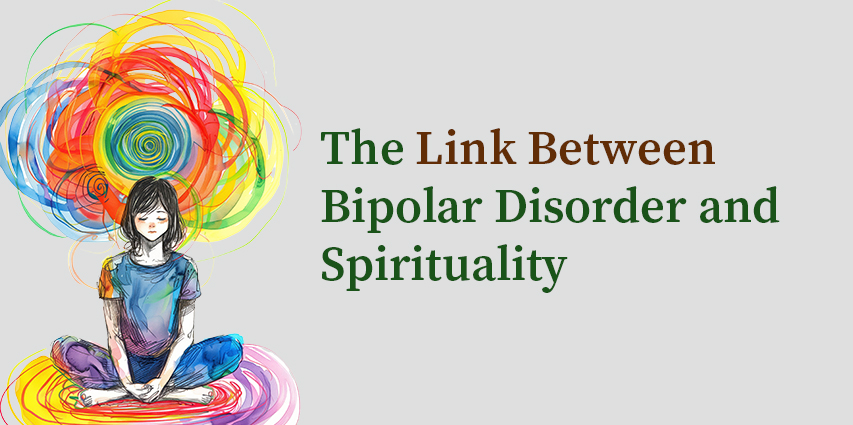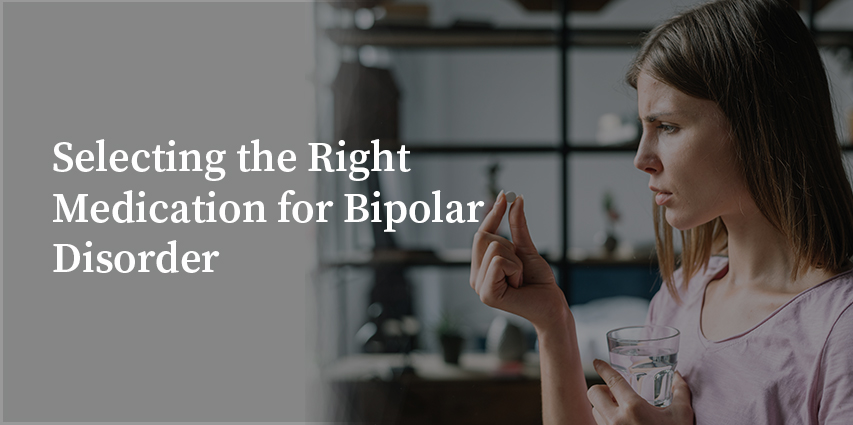Is There a Link Between Hypothyroidism and Bipolar Disorder?
Is There a Link Between Hypothyroidism and Bipolar Disorder? Bipolar disorder is a complex mental health condition distinguished by extreme mood shifts. Hypothyroidism is a state in which a person suffers from abnormally low thyroid gland activity, resulting in metabolic changes in adults. The symptoms between these two illnesses are remarkably similar, which leads to misdiagnoses and improper treatment. Our holistic approach to mental health encourages us to consider how underlying physical conditions, like hypothyroidism, might impact mental health disorders. By understanding how hypothyroidism can exacerbate or even mimic symptoms of bipolar disorder, we gain new insights into the importance of a whole-body approach to managing mental health. Understanding the Connection Between the Thyroid and Mental Health The thyroid gland, located at the base of the neck, produces hormones that regulate energy, metabolism, and mood. The body’s ability to regulate these essential functions diminishes when the thyroid is not performing sufficiently, as in hypothyroidism. Common symptoms of hypothyroidism include fatigue, depression, memory problems, weight gain, and slowed cognitive function. Thyroid dysfunction can directly impact mental health by disrupting neurotransmitter balance, affecting mood stability and cognition. Since neurotransmitters are essential for mood regulation, an underperforming thyroid can lead to symptoms that overlap significantly with mood disorders like bipolar disorder. This overlap can often result in misdiagnoses, where individuals with hypothyroidism might be diagnosed with bipolar disorder when, in reality, addressing their thyroid dysfunction could alleviate their mental health symptoms. In the case that hypothyroidism is a comorbidity, addressing the thyroid gland can significantly lower bipolar symptoms. Symptoms Overlap Between Hypothyroidism and Bipolar Disorder There is a significant overlap in symptoms between hypothyroidism and bipolar disorder, particularly in the depressive phase. Many symptoms of hypothyroidism—such as fatigue, irritability, cognitive slowing, and depression—can also be present in bipolar disorder.This overlap can be particularly challenging when it comes to diagnosis. For instance, during a depressive phase, a person with bipolar disorder may experience severe fatigue, weight changes, and low mood—all of which are also common in hypothyroidism. Conversely, untreated or undiagnosed hypothyroidism may cause mental health symptoms that are wrongly attributed to bipolar disorder, leading to treatment that addresses symptoms without tackling the underlying cause. Unfortunately, in cases where hypothyroidism is undiagnosed, individuals might receive mood stabilizers or antidepressants, which can be ineffective or even counterproductive if thyroid issues remain unaddressed. Hypothyroidism’s Impact on Neurotransmitters and Mood One key area of research in modern psychiatry is the role of neurotransmitters, such as serotonin, dopamine, oxytocin, and norepinephrine, in mood regulation. Hypothyroidism affects the brain’s ability to produce and regulate these neurotransmitters, leading to emotional instability and cognitive difficulties, which may present as symptoms similar to bipolar disorder. Low thyroid hormone levels can cause a reduction in dopamine, the neurotransmitter that contributes to feelings of motivation and pleasure. This decrease in dopamine can result in anhedonia — a loss of interest in enjoyable activities—, low motivation, and feelings of hopelessness. Meanwhile, low serotonin levels, often seen in hypothyroidism, contribute to depression and anxiety. This hormonal imbalance can create the emotional rollercoaster that individuals with bipolar disorder frequently experience. A Holistic Path to Healing In conventional medicine today, endocrinologists will administer medication and supplements like selenium for individuals with hypothyroidism. At BP Harmony, we are a proponent of integrative, root-cause medicine, advocating for approaches that consider the whole person rather than merely treating symptoms. We argue that conventional treatments often overlook underlying physical causes, like hypothyroidism, that may be contributing to mental health issues. Hence, we recommend a comprehensive approach for those diagnosed with bipolar disorder that involves screening for thyroid dysfunction alongside other underlying health conditions that might be influencing mental health. Our approach includes working with integrative medicine physicians, making nutritional changes, detoxification, and lifestyle modifications supporting thyroid and mental health. Nutritional Support for the Thyroid: Diet is one of the foundational elements we emphasize for supporting thyroid health. We suggest minimizing processed foods, refined sugars, and inflammatory substances, which can contribute to hypothyroidism. Instead, a diet rich in whole foods, notably those high in iodine, selenium, and zinc, can support thyroid function. Sea vegetables, seafood, nuts, and whole grains offer nutrients that boost thyroid health, which may positively impact mood stability. Moreover, consider eliminating gluten and dairy, as these two food types are often at the root of thyroid dysfunction. Learn more about the best diet for bipolar disorder here. Detoxification: Toxins such as heavy metals and endocrine disruptors (often found in household chemicals and certain foods) can impair thyroid function. We encourage reducing exposure to these toxins by opting for natural cleaning products, avoiding plastic containers, and choosing organic foods when possible. Detoxification practices such as sweating through exercise or sauna use and consuming antioxidant-rich foods can help the body eliminate these harmful substances. Mindfulness and Stress Reduction: Chronic stress negatively affects both thyroid and mental health, with elevated cortisol levels inhibiting thyroid hormone production. BP Harmony’s approach includes stress-reduction techniques like meditation, yoga, and deep breathing exercises to lower cortisol levels and support thyroid health. By reducing stress, individuals can foster an environment where mental and thyroid health can improve. Addressing Nutritional Deficiencies: Hypothyroidism is sometimes linked to deficiencies in essential nutrients like vitamin D, B12, and iron. The latest medical research from Harvard Medical School and Cleveland Clinic recommends getting tested for deficiencies and supplementing as necessary, as these nutrients play a critical role in thyroid function and neurotransmitter synthesis. Addressing these nutritional needs through food and supplements if they are incredibly deficient can support overall mood stability and energy levels. The Path Forward This blog post begins to shed light on the intricate relationship between hypothyroidism and bipolar disorder. By understanding how thyroid health can influence mood and mental well-being, individuals with bipolar disorder may have the opportunity to address an underlying physical cause of their symptoms, potentially improving mood stability and overall quality of life.If you or someone you know has bipolar disorder and exhibits symptoms of hypothyroidism, it may be worthwhile to explore this connection with a

